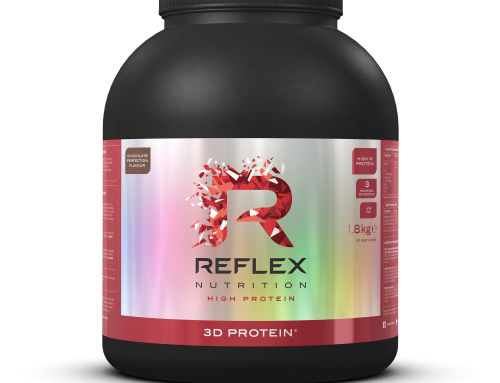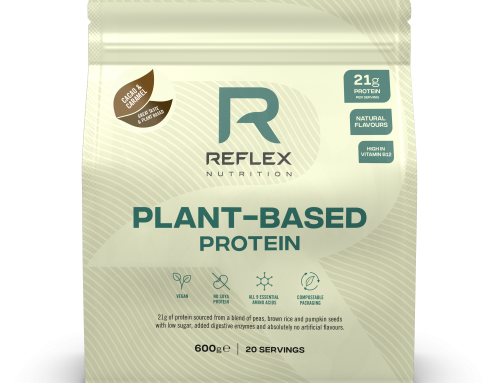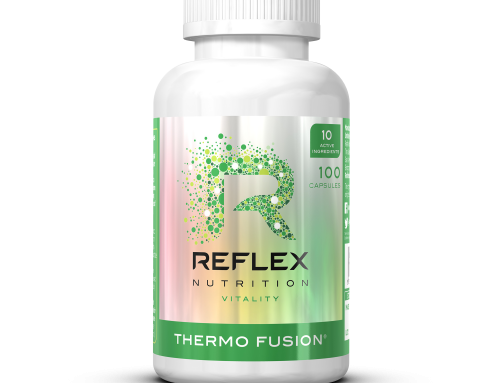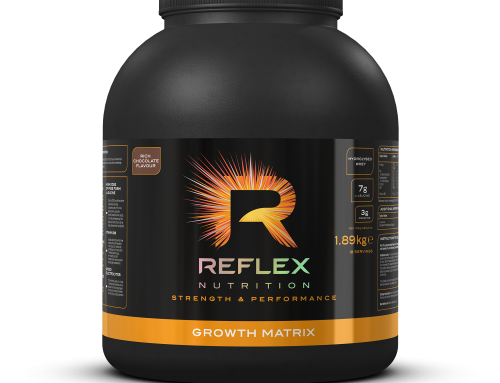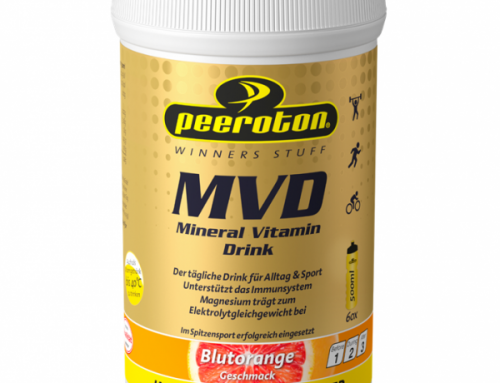Natural Power Mega Amino Review
Mega Amino is a muscle building product from Austrian based company Natural Power. The product description states that it supports the development of new muscle cells. With the use of the latest research this review will examine the ingredients of this product to understand how they do this.
Ingredients
Milk / whey / soy / egg protein
Whey, soy, milk and egg protein helps aid muscle protein synthesis when combined with resistance training (1, 2). Other key features include increasing muscle mass (3), an increase in lean body mass (4) and greater recovery from exercise (5). Longer periods of supplementation have shown greater gains in fat free mass (6).
Muscle protein synthesis is increased due to high concentration of Leucine (BCAA) which is a signalling molecule needed to increase muscle protein synthesis (7). Consumption of whey protein helps increase muscle mass due to a greater amount of peripheral nitrogen retention whereas soy protein has been found to have a greater effect on splanchnic protein synthesis (8).
The reason for greater recovery of exercise can be due to a post exercise insulin response (9, 10) which means glycogen resynthesis occurs rapidly so exercise can be prolonged, with greater training volume increased hypertrophy and decreased muscle damage.
Magnesium stearate
Magnesium stearate does not induce any nutritional benefits. The main reason for this substance being in the supplement is that it is a lubricant for the machinery that manufactures the product.
Summary
This product can be used for people who want to build muscle. the different types of protein that is included in this product will give you all the required amino acids for building muscle. This supplement can be taken either pre or post workout. This product has no banned substances when referring to the WADA prohibited list when observing the label/ ingredients posted on the website.
*NOTE – This product has not been tested in a laboratory and may contain other substances that may not appear on the label
References
1 – Coker, R. H., Miller, S., Schutzler, S., Deutz, N., & Wolfe, R. R. (2012). Whey protein and essential amino acids promote the reduction of adipose tissue and increased muscle protein synthesis during caloric restriction-induced weight loss in elderly, obese individuals. Nutr J, 11(1), 105.
2 – Hulmi, J. J., Lockwood, C. M., & Stout, J. R. (2010). Review Effect of protein/essential amino acids and resistance training on skeletal muscle hypertrophy: A case for whey protein.
3 – Pasiakos, S. M., McLellan, T. M., & Lieberman, H. R. (2015). The effects of protein supplements on muscle mass, strength, and aerobic and anaerobic power in healthy adults: a systematic review. Sports Medicine, 45(1), 111-131.
4 – Volek, J. S., Volk, B. M., Gómez, A. L., Kunces, L. J., Kupchak, B. R., Freidenreich, D. J., … & Kraemer, W. J. (2013). Whey protein supplementation during resistance training augments lean body mass. Journal of the American College of Nutrition, 32(2), 122-135.
5 – Hansen, M., Bangsbo, J., Jensen, J., Bibby, B. M., & Madsen, K. (2014). Effect of Whey Protein Hydrolysate on Performance and Recovery of Top-Class Orienteering Runners. International journal of sport nutrition and exercise metabolism.
6 – Hartman, J. W., Tang, J. E., Wilkinson, S. B., Tarnopolsky, M. A., Lawrence, R. L., Fullerton, A. V., & Phillips, S. M. (2007). Consumption of fat-free fluid milk after resistance exercise promotes greater lean mass accretion than does consumption of soy or carbohydrate in young, novice, male weightlifters. The American journal of clinical nutrition, 86(2), 373-381.
7- Atherton, P. J., Smith, K., Etheridge, T., Rankin, D., & Rennie, M. J. (2010). Distinct anabolic signalling responses to amino acids in C2C12 skeletal muscle cells. Amino acids, 38(5), 1533-1539.
8 – Fouillet, H., Mariotti, F., Gaudichon, C., Bos, C., & Tomé, D. (2002). Peripheral and splanchnic metabolism of dietary nitrogen are differently affected by the protein source in humans as assessed by compartmental modeling. The Journal of nutrition, 132(1), 125-133.
9- Hulmi, J. J., Volek, J. S., Selänne, H. A. R. R. I., & Mero, A. A. (2005). Protein ingestion prior to strength exercise affects blood hormones and metabolism. Medicine and science in sports and exercise, 37(11), 1990-1997.
10 – Power, O., Hallihan, A., & Jakeman, P. (2009). Human insulinotropic response to oral ingestion of native and hydrolysed whey protein. Amino acids, 37(2), 333-339.
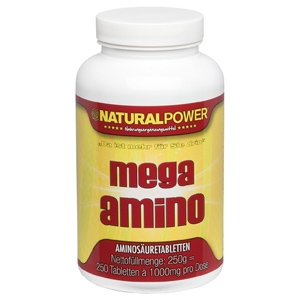
| Use for | Muscle Gain |
| Website | naturalpower.at |
| Price | €35.50 |
